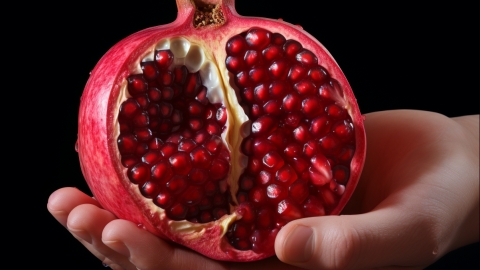What are the benefits of eating pomegranate after test tube implantation?
Generally speaking, eating pomegranates after test tube transfer can provide multiple benefits, including enhancing immunity, promoting digestion, relieving constipation, improving skin condition, and supplementing essential minerals. The detailed analysis is as follows:

1. Enhancing Immunity
Pomegranates are rich in vitamin C, a powerful antioxidant that helps strengthen the immune system and promote collagen synthesis, which is particularly important for post-test tube transfer recovery.
2. Promoting Digestion
Pomegranates contain organic acids such as malic acid and citric acid, which can stimulate gastric acid secretion and enhance gastrointestinal motility, thereby improving symptoms such as loss of appetite and indigestion that may occur after test tube transfer.
3. Relieving Constipation
Pomegranates are high in dietary fiber, which increases stool volume, promotes intestinal motility, and effectively prevents and alleviates constipation caused by medication or lack of physical activity after test tube transfer.
4. Improving Skin Condition
Nutrients such as vitamin C and vitamin K in pomegranates are beneficial for skin health, helping reduce wrinkles, enhancing skin elasticity, promoting metabolism, and preventing melanin deposition, thus improving the skin condition of patients after test tube transfer.
5. Supplementing Minerals
Pomegranates are rich in minerals such as calcium, iron, phosphorus, and potassium, which are vital for maintaining overall health. For example, potassium helps maintain normal heart function and stable blood pressure, while iron is a key component for hemoglobin synthesis. Consuming pomegranates in moderation can help prevent iron-deficiency anemia.
In daily life, patients should also maintain a diversified diet, including adequate intake of vegetables, whole grains, and high-quality proteins, to ensure comprehensive nutritional support for the body.






